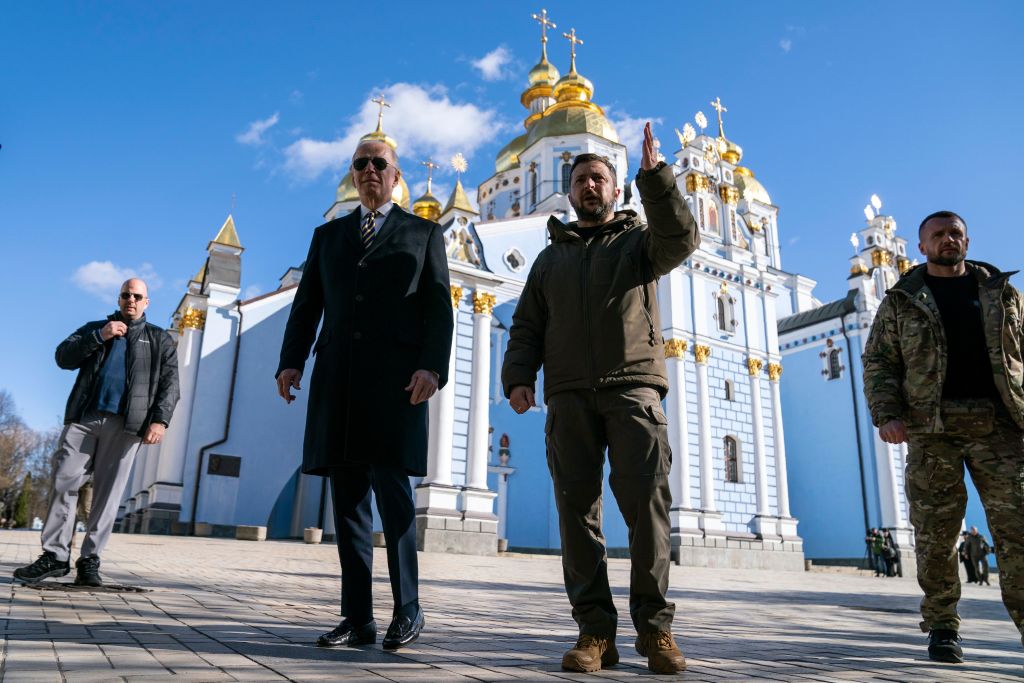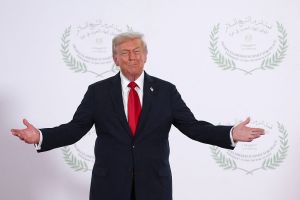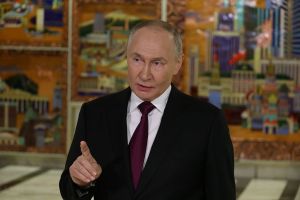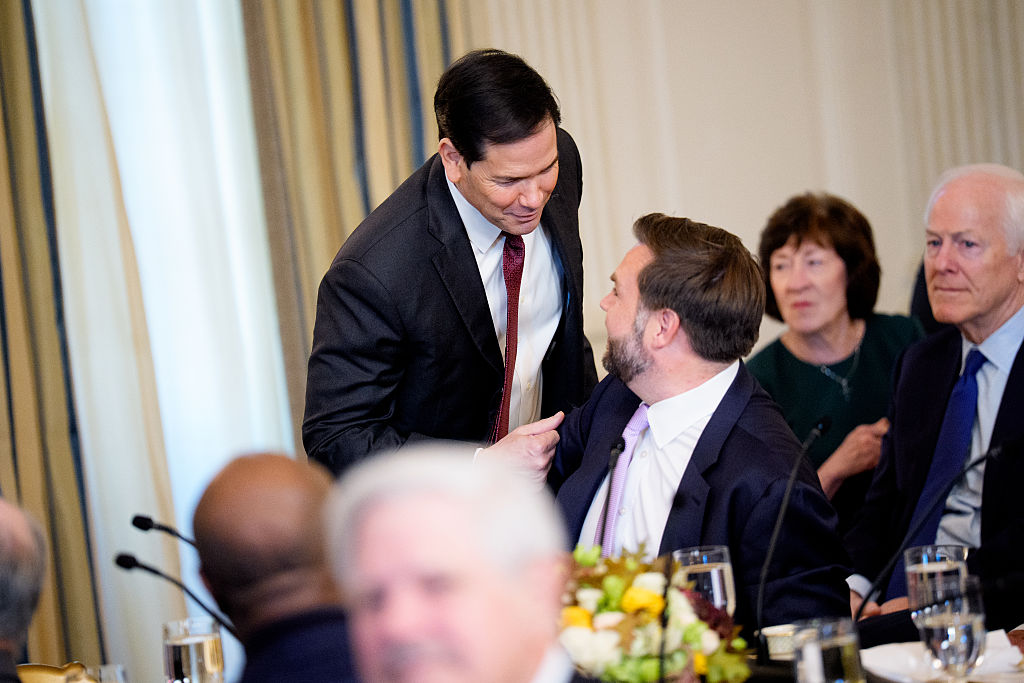It was only a matter of time before Joe Biden made a “surprise” visit to Kyiv. In the year since Russia’s attack on Ukraine, the choreographed walkabout with Volodymyr Zelensky has become the must-do photo-op for western global leaders. It’s the twenty-first century equivalent of an audience with the Pope — a symbolic news happening which shocks no one.
That’s not to say it’s not important. It signals, yet again, that America — the most powerful military and financial player on planet earth — is firmly behind Zelensky and his efforts to repel the Russian invasion. Biden may not, at this moment, be willing to provide the jets that the Ukrainians are so eager to obtain, but, in his press conference with the Ukrainian leader, he announced “the other half billion dollars… that will be coming your way.” It’s also a clear statement to Beijing over its reported attempts to broker a peace agreement. The message could be translated as “back off: Uncle Sam still makes the geopolitical weather.”
The media will focus on these talking points. But it’s worth also reflecting on another, less high-profile visit Joe Biden paid to Ukraine almost exactly nine years ago — on Air Force Two not One, when he was vice president in 2014 and Barack Obama had put him charge of dealing with the Maidan Revolution. Back then, he had a more modest aid package of $58 million to offer — as well as a stern warning to “fight the cancer of corruption.”
There was more than a whiff of hypocrisy in those words, since at the time Biden was attracting scrutiny over Hunter Biden, his son. Hunter, a drug addict, was then being ludicrously well paid to work for Burisma, a mining company run by the Ukrainian oligarch Mykola Zlochevsky, a “poster child for corruption,” according to one senior State Department official.
In public, the White House and the vice president’s office defended Hunter’s position: “Hunter Biden is a private citizen and a lawyer,” said a spokeswoman for Biden. “The Vice President does not endorse any particular company and has no involvement with this company.”
Behind the scenes, however, as Ben Schreckinger relates in his The Bidens: Inside the First Family’s Fifty-Year Rise to Power: “Joe’s aides were troubled by the arrangement, but they did not raise the issue with him because they feared being yelled at or hurting his feelings.”
In his wonderfully titled memoir, Beautiful Things, Hunter Biden insists, even though his last name was a “coveted credential,” he was amply qualified for the $1 million-a-year post at Burisma. “Dad called and said ‘I hope you know what you’re doing,’ wanting to make sure I’d done the due diligence… I assured him I had.”
Joe Biden once bragged that he had told the Ukrainians that they must fire their prosecutor general Viktor Shokin, who may or may not have been investigating Burisma (Hunter insists Shokin had been criticized for not pursuing the company he worked for.)
The “Ukrainegate” story was the source of Donald Trump’s first impeachment. Rudy Giuliani, acting in his capacity of Trump’s Mr. Legal-Fix-It, did some dirt-digging into the Biden-Ukraine business. Giuliani’s activities (using Russia-linked informants) led to Trump’s alleged “quid pro quo” offer to then new President Zelensky, when the 45th president suggested that the fulfillment of US military aid pledge might be contingent on Zelensky coughing up the right damning information on the Bidens.
Giuliani’s bungling efforts — and Trump’s subsequent impeachment — mean that today any suspicions about Biden in relation to Ukraine tend to be tarred as “Russian disinformation.” But Biden’s political vulnerability on the matter ought to be too obvious to ignore. Inquiring minds might wonder if Biden and Zelensky discussed “Ukrainegate” today — and if so, how that conversation went.
There’s also the curious case of John Hynansky, the Ukrainian-American businessman in Delaware who Biden in 2009 called “his very good friend.” After the 2014 Ukraine crisis, Joe Biden’s brother Jim and his wife Sara received $900,000 in loans linked to an entity controlled by Hynansky. Is it a coincidence that, from 2009 to 2012, Hynansky’s company, the Winner Automotive Group, received more than $20 million from the Overseas Private Investment Group, a federal body that gives out international development loans?
Nobody knows. In the fog of the Ukraine war, such questions seem to get lost.
This article was originally published on The Spectator’s UK website.

























